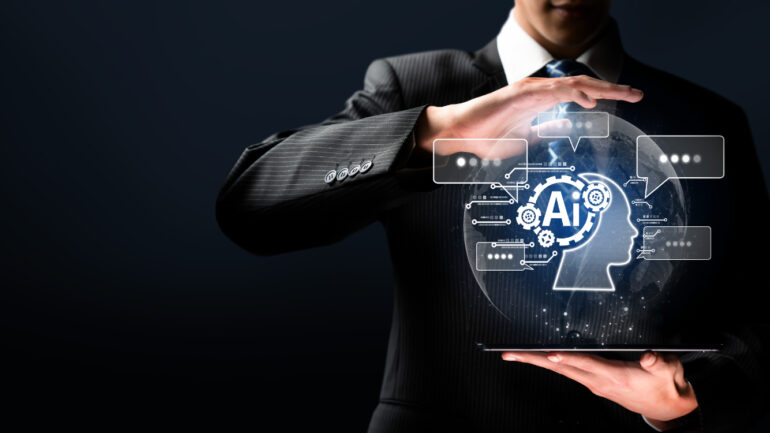AI’s Double-Edged Sword: Revolutionizing Creativity or Erasing Artistic Souls?

When AI clones voices, rewrites endings, and blurs the line between human and machine, the creative industry faces its biggest ethical dilemma yet. From Bollywood battles to Hollywood innovations, explore how technology’s promise clashes with the fight for artistic integrity and personal rights.
- Innovation vs. Exploitation: AI tools like voice cloning and scene generation offer exciting efficiencies but risk undermining artists’ rights, as seen in cases like Arijit Singh’s lawsuit and unauthorized recreations, calling for stronger legal safeguards.
- Blurring Boundaries: Initiatives such as CAA Vault and AI use in films like The Brutalist signal a future where AI replicas could expand creative possibilities, yet they challenge authenticity and raise fears of cultural revisionism.
- Path Forward: Balancing AI’s potential requires collaboration among artists, tech experts, and policymakers to establish ethical guidelines that enhance creativity without compromising human essence or ownership.
A couple of recent incidents; the re-release of the film “Raanjhanaa” with an AI-altered ending and the viral AI recreation of the song “Saiyaara” in the legendary singer Kishore Kumar’s voice, have reignited the ethical use of Artificial Intelligence in creative works. In both these instances, an algorithm was given the tasks of rewriting and cloning a creator’s definitive vision without their blessings. This is not the first time that this has happened, and this will not be the last time that such use of AI has kicked off a storm about its ethical use.
Playback singer Arijit Singh is the most followed artist on Spotify. When his voice was cloned, the resulting court case highlighted growing concerns around AI, IP (Intellectual Property) and personality rights. In 2024, Arijit Singh vs. Codible Ventures LLP became India’s first judicial ruling addressing generative AI misuse, intellectual property, and music. The landmark verdict established crucial legal precedents for protecting personality rights against AI-driven identity exploitation, highlighting escalating conflicts between technological advancement and creative ownership.
The rise of AI in media production extends beyond Bollywood, enabling performance/dialogue alteration and hyper-real scene generation. While framed as technical enhancement, this capability risks cultural revisionism – erasing historical truths, distorting artistic intent, and imposing formulaic narratives through AI-powered content sanitization.
The creative industry across the world is, however, is divided over the issue of embracing or rejecting AI. As Hollywood grapples with the implications of this groundbreaking technology, industry powerhouses are taking proactive measures to harness its potential. One such initiative is the reported CAA Vault program by the influential talent agency Creative Artists Agency (CAA).
According to reports, CAA has been quietly testing an initiative called CAA Vault, which allows some of its A-list clients to create AI clones of themselves. The goal is to open up new creative opportunities and explore the possibilities that AI cloning technology offers.
Here’s how the CAA Vault program works:
Data Collection: CAA partners with AI firms to conduct comprehensive scans of its clients’ bodies, faces, and voices, capturing every minute detail.
AI Replica Creation: Using the collected data, advanced machine learning algorithms are trained to create highly accurate AI replicas of the clients.
Potential Use Cases: These AI clones can then be utilized for various purposes, such as reshooting scenes, dubbing dialogue in different languages, or superimposing stunt doubles with the client’s likeness.
While the CAA Vault program is currently limited to select A-list clients, the agency’s long-term vision is to eventually make this technology available industry-wide, not just to its exclusive roster. This proactive move by CAA signifies the entertainment industry’s recognition of the disruptive potential of AI cloning and the need to stay ahead of the curve. As the technology continues to advance, the line between hiring a real actor and their AI replica may become increasingly blurred for the average viewer.
This year’s Academy Awards will perhaps be more known for controversies swirling around AI use in creative works. Both Netflix’s “Emilia Pérez” and A24’s “The Brutalist” dominated award nominations this year. It was revealed that the software company Respeecher was used in both films to alter different actors’ voices.
In “The Brutalist” AI was used to improve the Hungarian dialect spoken by stars Adrien Brody and Felicity Jones, particularly to fine-tune the difficult accent. While production initially tried using traditional automated dialogue replacement to resolve the issue, but it didn’t work, leading them to explore AI options. Looking ahead, these incidents indicate a future where the line between human and AI-generated content will increasingly blur, challenging notions of authenticity and authorship. While some in the creative industry embrace AI as a transformative tool, others caution against its potential to erode trust and cultural heritage. The controversies at this year’s Academy Awards further illustrate that public and professional scrutiny of AI’s role in media will intensify, pushing for clearer ethical guidelines and robust legal protections.


